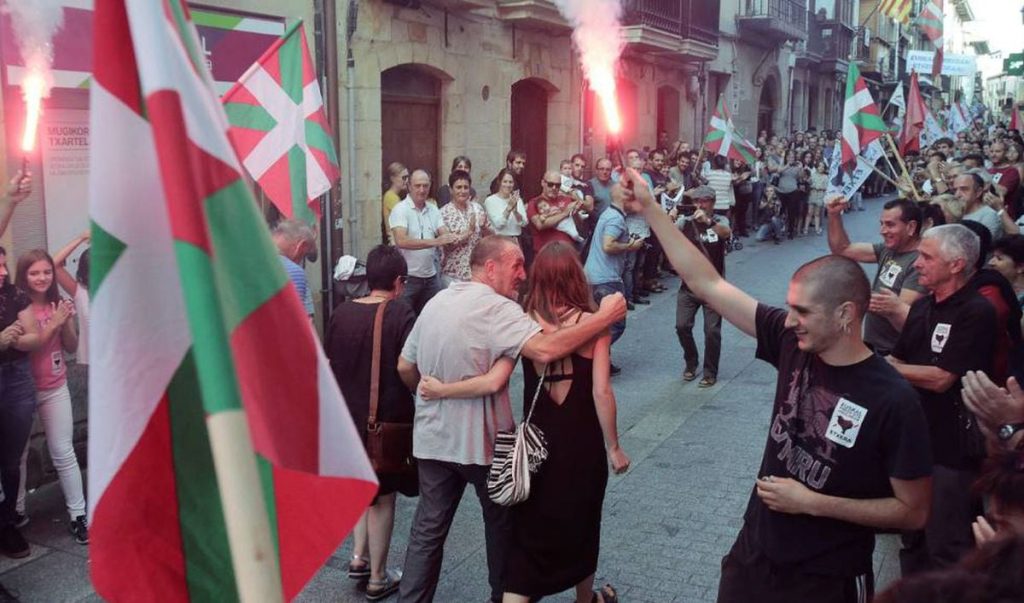The judge of the National Court, Manuel García-Castellón, has proposed to try six individuals, mostly former members of ETA, for the crime of continuous humiliation of victims and glorification of terrorism by organizing 120 tribute events for ETA prisoners between 2016 and 2020. In the procedural order, requested by the Public Prosecutor’s Office, the judge proposes to try members of the Prisoners Commission of Sortu, José Antonio López Ruiz (Kubati) and Oihana Garmendia Marín, along with Haymar Altuna, Oihana San Vicente Saez de Cerain, Carlos Saez de Egilaz Murgiondo, and Felipe San Epifanio San Pedro. The judge alleges that these individuals, as members of the Prisoners Commission, systematically organized tribute events, sometimes using the Kalera Kalera dynamics or other social movements or associations.
The organization of these tribute events to ETA prisoners was carried out through strict rules regarding which prisoners to pay tribute to and how the events should be conducted, according to the judge’s order. The judge also highlights the close relationship between the individuals involved in organizing these events and the specific objectives of the tribute, emphasizing the systematic and organized nature of their activities. The judge’s decision to prosecute these individuals for the crime of glorifying terrorism and humiliating victims is based on evidence that they played a significant role in organizing and carrying out these events over a period of four years.
The judge’s decision to prosecute these individuals for the crime of glorifying terrorism and humiliating victims reflects the ongoing efforts by Spanish authorities to investigate and prosecute individuals involved in activities linked to ETA and other terrorist organizations. The trial of these individuals will shed further light on the extent of their involvement in organizing tribute events for ETA prisoners and their role in perpetuating ideologies that glorify terrorism. The proposed trial will also serve as a reminder of the impact of terrorism on its victims and the importance of holding individuals accountable for their actions in support of terrorist organizations.
The judge’s proposal to try these individuals for their alleged involvement in organizing tribute events for ETA prisoners has sparked debate and controversy in Spain, with some arguing that such activities should be protected under freedom of expression, while others stress the need to hold individuals accountable for actions that glorify terrorism and humiliate victims. The trial of these individuals will be closely watched by both supporters and opponents of the Spanish government’s efforts to combat terrorist activities and hold individuals accountable for their role in supporting terrorist organizations. The outcome of the trial will have broader implications for the ongoing fight against terrorism and efforts to seek justice for victims of terrorist acts.
In conclusion, the judge’s decision to prosecute these individuals for their role in organizing tribute events for ETA prisoners highlights the ongoing efforts by Spanish authorities to investigate and prosecute individuals involved in activities linked to terrorist organizations. The trial will provide further insight into the extent of their involvement in these activities and their impact on victims of terrorism. The outcome of the trial will have broader implications for the fight against terrorism and efforts to seek justice for victims of terrorist acts in Spain.















